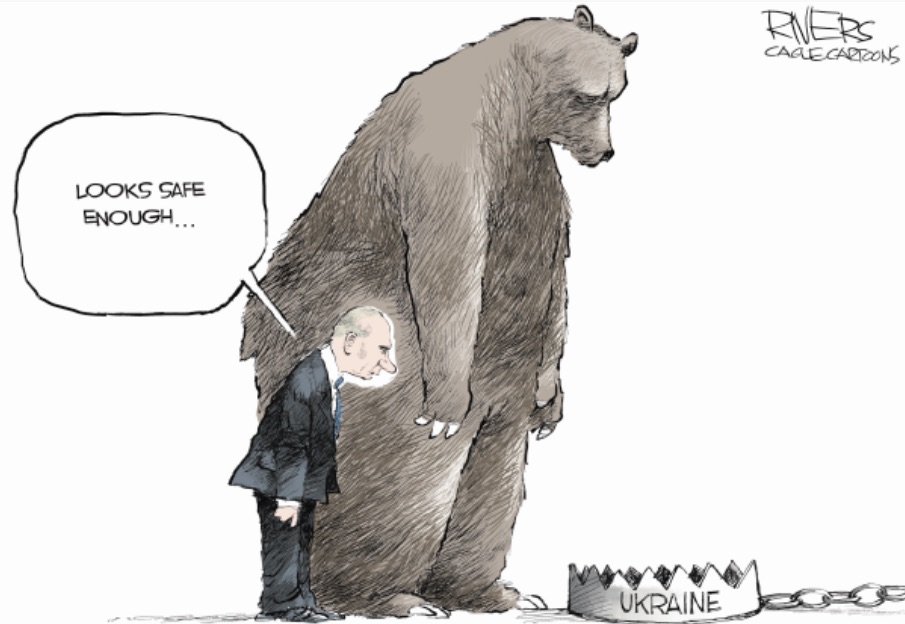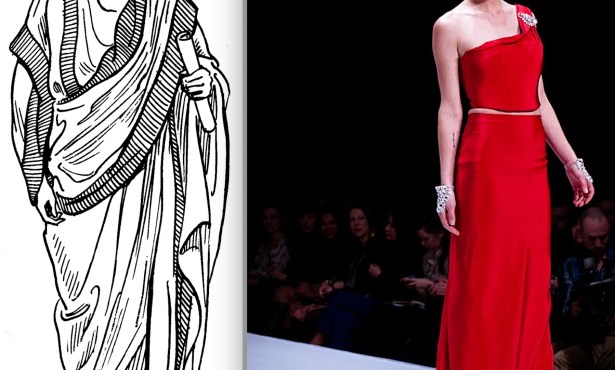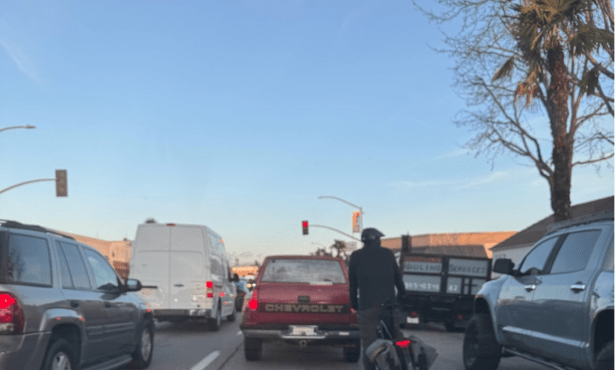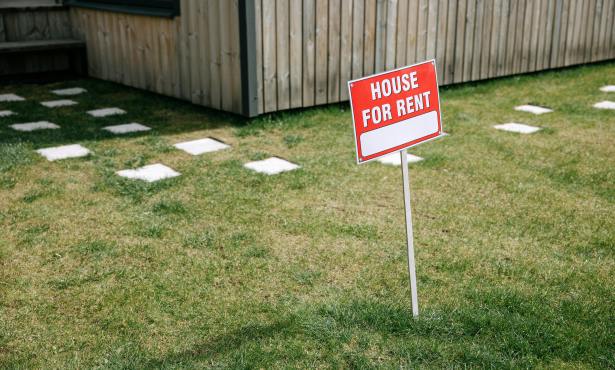Putin’s Fear of People Power
The Grievance Behind Russia's Attack Against Ukraine

In a rambling speech just before Russia invaded Ukraine, President Putin justified the attack by claiming that Ukraine was simply Russia and Ukrainians Russians. This amateur and false rendering of Ukraine’s history contained a crucial miscalculation: Ukrainians fought for their democracy in the 2004 Orange Revolution and again in 2014 during the Euro Maidan, and they are prepared to do that again in the face of Russia’s superior arms.
Putin also accused Ukraine of being a Nazi regime that committed genocide against ethnic Russians and claimed that NATO and the United States actively sought to undermine Russia. The real threat to Putin from Ukraine is not near-term NATO or EU membership. It is Ukraine’s example of democracy. Putin’s obsession with Ukraine is with the role that its citizens played in rejecting a fraudulent election in the Orange Revolution and again in Euro Maidan when Ukrainians drove out the pro-Russian President Viktor Yanukovych. It is a fear of active citizens that drives Putin’s demands to “demilitarize” and “de-Nazify” Ukraine.
The audience for Putin’s rambling speeches are Russians, long subjected to heroic propaganda about World War II and the threats posed by Ukraine’s Orange Revolution and Euro Maidan. Putin’s identification of Ukraine and Ukrainians as Russian reflected the policy of a “Russian World” in which Russia has a special responsibility to protect ethnic Russians everywhere and in which the West threatens Russian values and culture. These assertions reflect a Russian imperial perspective that ignores Ukrainian history and the reality of Ukraine’s 30 years as an independent, sovereign state.
Putin wants to return to a pre-1997 NATO, before Eastern Europe and the Baltic States joined. His non-negotiable demand that NATO be rolled back is in order to reestablish Russian influence in areas he calls the “Near Abroad,” the former republics of the USSR. Russia and some Western pundits assert that when Ukraine gave up its nuclear weapons for guarantees of sovereign, secure borders — in the Budapest Agreement of 1994 — a promise of no NATO expansion was included. They assert the West took advantage of Russia’s weakness and broke its promise.
I do not think any of this is true, but it does fit Putin’s sense of victimhood and humiliation that Russia, a nuclear power, is no longer a super power. It is consistent with his expression of tragedy over the collapse of the Soviet Union. The facts are that no new states have joined NATO since 2004, though Ukrainian public opinion shifted toward membership in NATO after the events of 2014. But no imminent expansion of NATO is planned. An emotionally rooted grievance fuels Putin’s adamancy.
So, how is Russia’s attack on Ukraine different from its previous behavior?
In 2008, the Russian attack on Georgia focused on South Ossetia. By recognizing this ethnically defined area within Georgia as independent, it meant that Georgia’s border was contested, preventing it from joining NATO. The 2014 attack on Crimea contested another border — Ukraine’s. Crimea, inhabited by a large retired Soviet military population that was mostly ethnic Russian, offered no opposition, and the nationalist framing had resonance in Russia.
Note that while Crimea was incorporated into the Russian Federation, the two Ukrainian provinces of Donbass and Luhansk, whose rebellion was led by small groups of local Russians supported by an unidentified Russian army, were not. They remained areas of contention, part of a hybrid war. So, why not simply expand these areas, as many inside Russia thought was Putin’s intention, in order to pressure Ukraine from any pursuit of NATO membership? Why take on the entire Ukraine?
What Putin fears is a decline in popular support within Russia. During the 2000s, his popularity was based on stability and economic growth. When the Russian economy faltered, Crimea provided nationalism as a substitute. Today Russia increasingly relies on repression to limit public dissent, to eliminate alternative political leaders, and to control mass media. Yet, Russians are protesting the war despite arrests. Younger Russians born after the Soviet collapse turn to social media, not state-dominated television for information. Putin’s propaganda is not believed, and sanctions will threaten their way of life. Even among those who support Putin, the collapse of the ruble and high inflation may erode trust.
Other unexpected consequences of the current Russian attack are even more serious. The war has unified NATO and reminded it of its raison d‘être. NATO’s Article 4 for the first time will activate the Rapid Deployment Force stationing troops closer to Russia. Economic sanctions on the Central Bank of Russia and exclusion from SWIFT financial communication services threatens the ruble and the Russian economy.
The post-Cold War world has changed. Russia has violated the international norms of behavior that have kept us safe. Despite increased investment in the Russian military, Russia remains a unidimensional power that alludes to nuclear options when conventional forces confront a Ukrainian people willing to fight for their existence as a free people.
The actions of Europe, the United States, and Japan along with a special UN General Assembly Meeting will isolate Russia, leaving only China as a friend, one who supports the sovereignty of nations.
The events in Ukraine are a tragedy. The path to a stable peace won’t be easy, but at least we have responded in support of Ukraine and democracy.
Cynthia S. Kaplan is a professor in the Department of Political Science at UC Santa Barbara.



